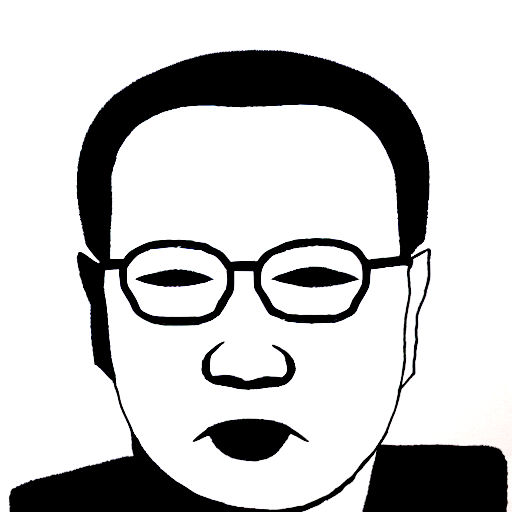Liu Xiaobo was a Chinese writer, literary critic, human rights activist, philosopher and Nobel Peace Prize laureate who called for political reforms and was involved in campaigns to end communist one-party rule in China. He was arrested numerous times, and has been described as China's most prominent dissident and the country's most famous political prisoner. On 26 June 2017, he was granted medical parole after being diagnosed with liver cancer; he died a few weeks later on 13 July 2017.Liu rose to fame in 1980s Chinese literary circles with his exemplary literary critiques. He eventually became a visiting scholar at several international universities. He returned to China to support the 1989 Tiananmen Square protests and was imprisoned for the first time from 1989 to 1991, again from 1995 to 1996 and yet again from 1996 to 1999 for his involvement on suspicion of inciting subversion of state power. He served as the President of the Independent Chinese PEN Center, from 2003 to 2007. He was also the president of Minzhu Zhongguo (Democratic China) magazine starting in the mid-1990s. On 8 December 2008, Liu was detained due to his participation with the Charter 08 manifesto. He was formally arrested on 23 June 2009 on suspicion of "inciting subversion of state power". He was tried on the same charges on 23 December 2009 and sentenced to eleven years' imprisonment and two years' deprivation of political rights on 25 December 2009.During his fourth prison term, Liu was awarded the 2010 Nobel Peace Prize for "his long and non-violent struggle for fundamental human rights in China."Liu was the first Chinese citizen to be awarded a Nobel Prize of any kind while residing in China. He was the third person to have been awarded the Nobel Peace Prize while in prison or detention, after Germany's Carl von Ossietzky (1935) and Burma's Aung San Suu Kyi (1991). He was the second person to have been denied the right to have a representative collect the Nobel Prize for him as well as the second to die in custody, with the first being Ossietzky, who died in Westend hospital in Berlin-Charlottenburg after being detained in a Nazi concentration camp. Berit Reiss-Andersen, chairman of the Norwegian Nobel Committee, blamed the Chinese communist regime for his death and said that "Liu Xiaobo had contributed to the fraternity of peoples through his non-violent resistance against the oppressive actions of the Communist regime in China."
Sol turns thousands of years of human wisdom from the world’s spiritual traditions into a totally unique personality profile. To get your own profile, check compatibility with friends and much more, download the Sol App today.
Some of their strengths
Liu Xiaobo has many admirable traits.
Based on spiritual traditions from around the world, they are someone who can be described as Intuitive, Imaginative, Loyal, Generous, Optimistic, Energetic, and Intelligent.
Smart and Hardworking
According to Mysticism’s Astrology tradition, Liu Xiaobo is someone who is a smart, hardworking, reliable, and loyal person, who is detail-oriented and orderly, but also generous and optimistic. A person who is ambitious and motivated.
Soulful and Intuitive
Based on Daoism’s Ba-Zi or ‘Chinese Zodiac’ tradition, people who know Liu Xiaobo well know them as someone who can be graceful, romantic, and reserved, like gentle rain.
Truthful and Kind
According to Hinduism’s Jyotisha or ‘Vedic Astrology’ tradition, many would also describe Liu Xiaobo as someone who is honest, compassionate, imaginative, and instinctual.
A person who enjoys new challlenges, is a magnet for attracting other creative types, good at identifying opportunities, and who is good at forming loyal, lifelong friendships.
Social and Intuitive
Based on the Mayan Tzolk’in or ‘Mayan Astrology’ tradition, Liu Xiaobo is someone who values forming deep friendships and relationships, and who has strong intuition and reasoning skills .
They are also someone who is calm, comforting, and stable, and who loves stability and being a good friend and loyal partner.
Patient and Perseverent
According to Judaism’s Kabbalah tradition, Liu Xiaobo tends to be someone who is patient, faithful, hardworking and persistent, and who wants to achieve a lot in life. Who tends to be rather private when it comes to expressing feelings, enjoys being independent and self-sufficient, and who is not afraid of any obstacle.
Some of Liu Xiaobo's challenges
While Liu Xiaobo has many strengths, nobody is perfect. They also have some challenging traits they need to manage.
For example, Liu Xiaobo can be Suspicious, Stubborn, Hypocritical, Self-centered, Short-tempered, Impulsive, and Unrealistic.
Suspicious and Stubborn
One of Liu Xiaobo's key challenges is that they are someone who can be suspicious and stubborn.
Unrealistic and Indecisive
Liu Xiaobo is someone who can be unrealistic, indecisive, and lacking in confidence, who can be impulsive when it comes to making important decisions, have difficulty collaborating with others, can be argumentative and not willling to accept criticism, and who can be disappointed by the high expectations they place on others.
Callous and Stubborn
Finally, Liu Xiaobo also can come across as cold and unemotional, be too dismissive of others' opinions, and be overly suspicious, selfish and crafty.

